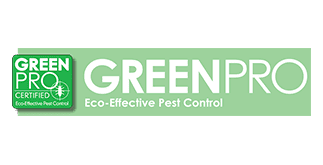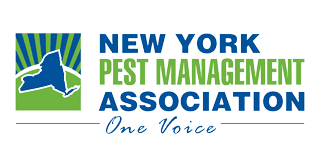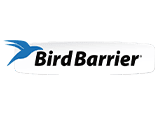A Guide To Common Pest Identification In The Capital Region
No one can deny that the Capital Region of New York is a beautiful place to live. We experience each of the four seasons, and each new season brings a change in weather and new outdoor activities to enjoy. Unfortunately, we aren't the only ones that call the Capital Region home. Many pests that live in the Capital Region and often look to us and our homes and businesses to provide them with their basic needs. Each new season brings about new pest issues, so having a basic understanding of our area's most common pests is the best way to protect your home and family from them throughout the entire year.
Below is a quick overview of the insects and rodents that regularly invade our region's properties.
Ants
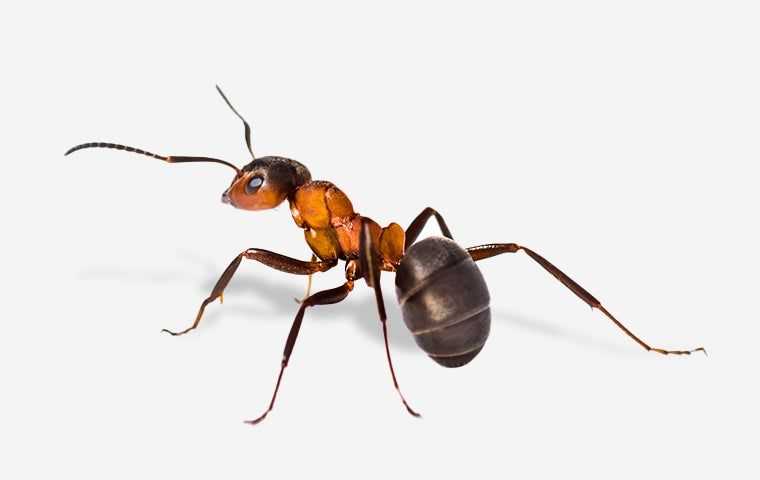
Ants are regular visitors to our Capital Region homes and businesses, with their tiny size allowing them to move inside through any small cracks they find in the exterior of our structures. Ants are difficult to prevent and even more challenging to eliminate once they decide to move into your home. Below are some of the most common ant species that take over our New York properties.
- Carpenter ants nest inside pieces of wood; in our home, these ants cause structural damage.
- Citronella ants produce a strong lemon or citronella smell when crushed.
- Odorous house ants emit an odor that smells like rotten coconuts when crushed.
- Pavement ants nest in the soil next to or in the cracks of pavement, sidewalks, rock walls, or cement foundations.
Knowing what is attracting ants to your property is essential to win the war against these persistent pests. The biggest reason ants have become a problem for you is that they have found a reliable food source. The more food sources they discover, the more of a problem they will be. Things like outdoor trash cans, compost piles, outdoor eating areas, and gardens act as an open invitation for ants to make themselves at home on your property. As ants travel around your yard, they will eventually wind up in your house, moving in and out of it each day as they gather crumbs and other sources of food to bring back to the nest. As time goes on, the weather outside becomes unsuitable, or they are finding more food inside your home than out, they will decide to stay and nest within your walls, under floors, or spaces above ceilings.
If you see ants traveling around your yard or house, it is best to contact a professional. At Absolute Pest Control, our professionals will provide accurate identification and find and eliminate all ants and nesting sites on your Capital Region property. In addition to our effective ant control solutions, the following tips will help prevent ant problems.
- Seal any cracks that develop in your foundation or exterior walls.
- Make sure screens in windows and doors are secure and free of holes.
- Store trash inside and outside your home in containers with tight-fitting lids that will help to reduce food odors.
- Keep kitchens and indoor and outdoor dining areas clean and free of food debris.
Bed Bugs
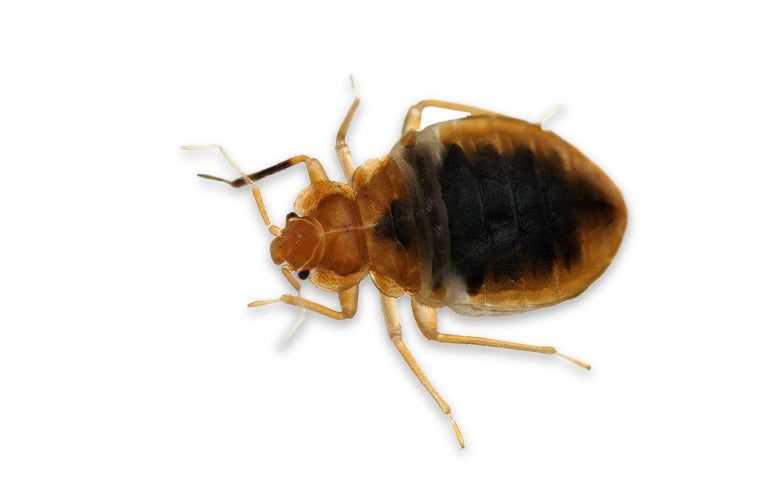
The more time you spend traveling or in public places, the more chances there are that you will come into contact with bed bugs. Bed bugs have adapted to living inside structures where people live or spend their time because our blood is their favorite food source. Like other pests, they want to live in places that put them close to food sources, which is why they are frequent visitors to our homes and businesses. In our homes, bed bugs like to hide in sleeping areas or areas of the house where people spend a lot of time. Some favorite hiding spots include the seams of mattresses, upholstered furniture, and cracks in walls or wooden furniture.
Bed bugs move from place to place by hitchhiking on people, bags, luggage, and secondhand items like furniture or mattresses. If bed bugs are your home, you may notice some of the following signs:
- Reddish-brown apple seed-shaped insects in the seams of mattresses and box springs
- Red drops of blood or dark streaks on pillows, bedding, cushions, or walls
- Shed insect skins on the floor in drawers or under mattresses
- A sweet, musty odor in certain areas of your home
- You or family members waking up with unexplained bed bug bites
If you suspect bed bugs have found their way into your home, contact Absolute Pest Control. Accurate identification is key to eliminating these pests as quickly as possible. In addition to our effective bed bug control services in the Capital Region, the following tips will help you prevent problems with bed bugs.
- When traveling, always inspect your hotel room before bringing luggage inside, keep suitcases up off the ground, and when you get home, wash and dry all clothing taken on the highest heat settings.
- Try to avoid purchasing second furniture, mattresses, and appliances.
- When in public places, avoid placing your purses, bags, and other personal belongings up off the ground.
- Frequently and thoroughly vacuum your floors and change and wash bedding to get rid of stray bedbugs.
Fleas & Ticks
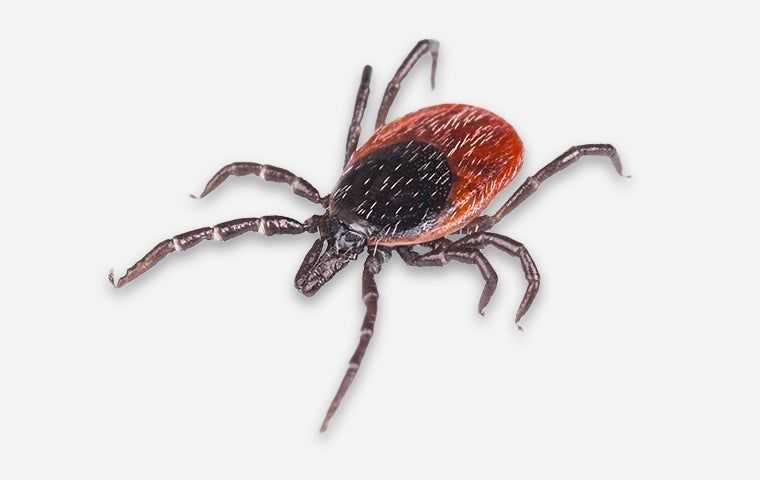
Fleas and ticks are two pests often grouped together because both solely feed on the blood of people and animals, and both are common invaders in our yards. Despite their similarities, some differences help to tell these two biting, blood-feeding pests apart. Fleas have shiny reddish-brown bodies that are flattened from side to side. They are tiny in size and lack wings but use their large back legs to jump long distances and onto their hosts. After feeding, ticks become engorged with blood and are larger in size than fleas. They are a type of arachnid, and adults have eight legs. Ticks are unable to jump. To gain access to a host, they crawl to the top of vegetation and wait for an appropriate host to brush past them that they can crawl onto.
Fleas and ticks are most commonly introduced onto our properties by wild animals or stray pets. Rodents and other animals often are attracted to properties with the following:
- Open trash cans
- Compost
- Outdoor eating or grilling areas
- Gardens
- Bird feeders
- Wooded areas
- Tall grass overgrown shrubbery
When spending time in our yards or outdoor spaces, it is common for fleas or ticks to jump or crawl onto us or our pets; we then bring them indoors with us. Fleas are prolific breeders and can breed inside and outside, making them very frustrating pests to deal with. In contrast, most ticks can't breed indoors, and these pests are more of a threat to us in our outdoor spaces.
If you are having trouble enjoying your Capital Region yard because fleas and ticks have decided to call it home, reach out to Absolute Pest Control and learn about our effective flea and ticks control services. In addition to our professional services, the following tips will help to prevent problems with these pests:
- Trim your lawn and shrubs regularly; fleas and ticks love to hide in areas of overgrown vegetation.
- Place a rock barrier around the perimeter of your home.
- Cut back wooded areas from the perimeter of your property.
- Always inspect yourself, kids, or pets before coming inside.
- Place pets on a year-round flea or ticks control program under the guidance of their veterinarian.
- Vacuum your floors and upholstered furniture regularly.
- Remove things from your yard that will attract wild animals.
Mosquitoes
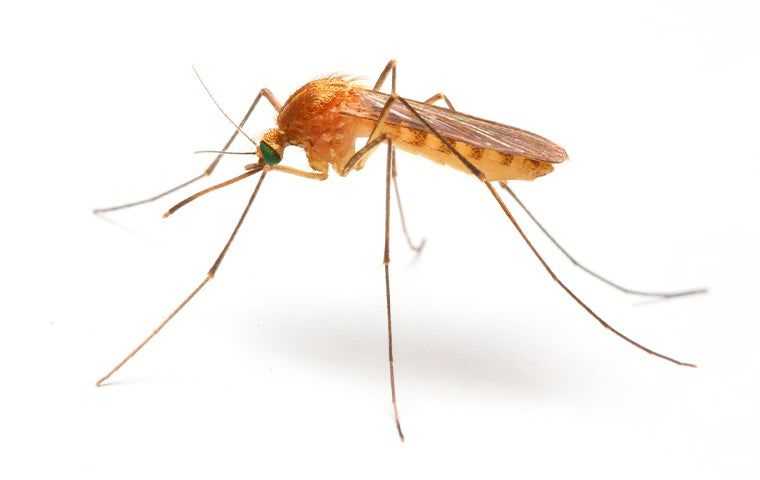
Every summer brings with it warm weather, plenty of outdoor fun, and, unfortunately, hordes of biting mosquitoes. The mosquito is a type of fly and the females require blood meals to create viable eggs. The female delivers bites that result in red itchy welts. Though their bites are unpleasant, the bigger problem with mosquitoes is their ability to spread diseases to people and animals. As they feed and transfer saliva, they can also transmit disease-causing pathogens and parasites that can make us quite ill. These pests are also well-known for spreading parasitic heartworm to our pets, a potentially life-threatening infection.
While not every mosquito you come across carries a disease, the potential is there, which is why it is essential to limit as much contact with mosquitoes as possible. One of the best ways to reduce mosquito activity on your property is to reduce their breeding spots. The mosquito develops from egg to adult in a very short time, meaning the more places you have for them to lay their eggs on your property, the more mosquitoes you will have to contend with daily. Mosquitoes lay their eggs on top of standing water, so do the following things to help reduce the amount of standing water buildup in your yard:
- Keep gutters clear of debris that can allow rainwater to collect.
- Fill in low-lying areas that will enable water to puddle.
- Make sure your lawn's irrigation system isn't leaking.
- Store containers like buckets and flower pots upside down when you are not using them.
- Regularly empty and refill the water in wading pools, birdbaths, and pet water bowls.
- Don't overwater gardens or flowerbeds.
- Shake off the water that collects on tarps or the top or trash can lids.
- Remove things like tree stumps and brush piles that collect rainwater.
While reducing excess water around your house is helpful, the best way to reduce mosquitoes is to partner with an experienced professional. At Absolute Pest Control, we offer a mosquito protection plan in the Capital Region that disrupts the breeding process to reducing the number of adult mosquitoes swarming around your property. Our goal is to take away your backyard from mosquitoes and give it back to you and your family. To schedule an inspection of your yard and get started reducing mosquito numbers, call us today!
Rodents
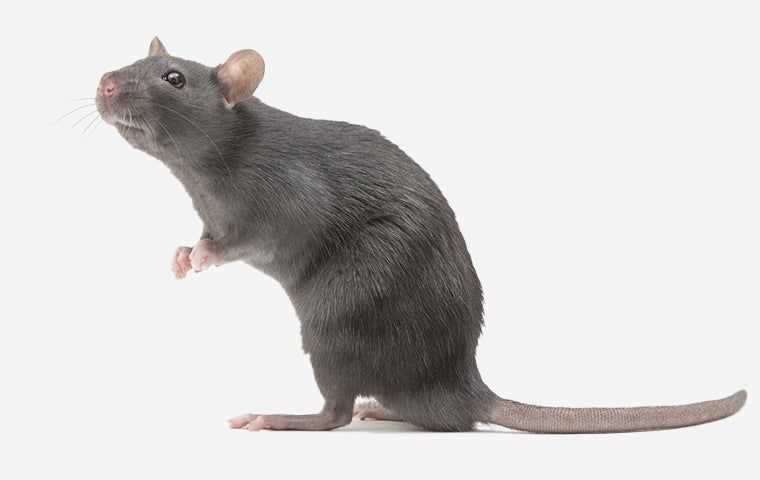
Though rodents like mice and rats are typically associated with the winter season, they are a threat to the Capital Region home and business owners throughout the entire year. These pests live outside in suburban and urban areas, often near our man-made structures. Things like a drastic change in weather (heat or cold), a reduction in their food or water sources, or the need for a quiet, safe place to nest, will send them straight into our Capital Region homes.
Mice and rats are rodents and have sharp, chisel-like front incisors in their top and bottom jaws. They use their teeth to move in and out of nesting areas, gather food, and defend themselves. Their teeth, while beneficial to them, are a threat to our homes and yards. Rodents will chew through and damage trees, garden plants, boxes, wires, cables, flooring, furniture, and more. Rodent infestations can cause short circuits, fires, and water damage. But, rodents are much more than damaging pests to have on our properties; they also spread human pathogens and contaminate surfaces and our food sources with bacteria that can make us ill. Allergies and skin rashes can also be triggered by shed rodent fur and feces.
Rodents should never be allowed to share our homes with us. At the first sight of these pests, reach out to Absolute Pest Control. In addition to our effective rodent control solutions, the following tips will help you prevent rodent problems.
- Always keep lids on outdoor trash cans.
- Keep outdoor grill and eating areas free of food debris.
- Whether you feed your pets inside or outside, make sure to pick up uneaten pet food every evening.
- Keep your kitchen free of as much food debris as possible by storing food in the fridge or pantry in hard-sided containers with airtight lids.
- Remove as many entry points into your house as possible by sealing cracks in the foundation, using steel wool to fill spaces around wires and pipes, and placing covers over vents and chimneys.
Stinging Insects
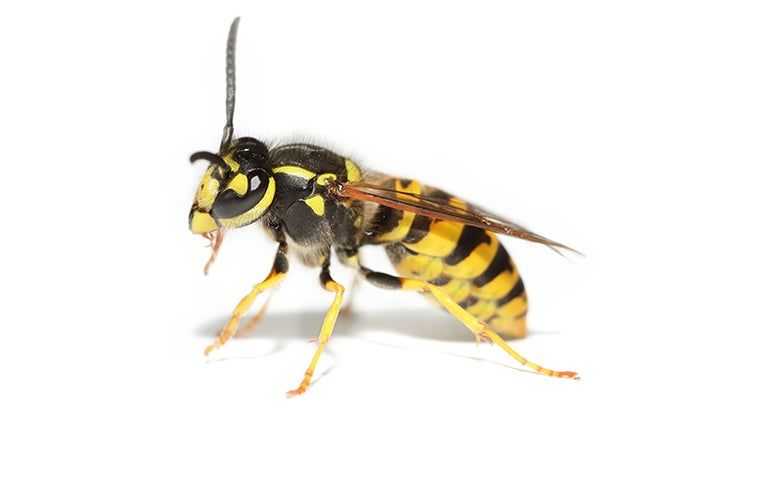
When in our yards, one group of pests dramatically reduces our ability to enjoy our outdoor space — stinging insects. Stinging insects like yellow jackets, wasps, bees, hornets, and mud daubers live throughout New York and won't hesitate to make themselves at home in our yards as long as they provide them with their basic needs. Stinging insects can be quite dangerous and territorial of their nests, defending themselves by delivering painful, venom-filled stings. People allergic to their venom can experience swelling around the sting sites or even a whole-body reaction that affects their ability to breathe properly. Having stinging insects swarming around you and your family when trying to eat outdoors, play in the grass, garden, or do lawn work is unpleasant and makes it impossible to relax.
In our area, stinging insects are most active during the summer season when the weather is warm, food is plentiful, and workers are dutifully out and about gathering food to bring back to the nest. Unfortunately for us, this is also the time of year when we are most active outdoors, increasing the chances of coming into contact with stinging insects. What makes our yards so attractive to stinging insects is that they can find a wide variety of food and shelter sources. Some of the many places stinging insects may create a nest in your yard include the ground, trees, shrubs, under roof eaves and decks, or even inside of your wall voids or attic. Stinging insects have varied diets, and our trash cans, gardens, flowerbeds, and outdoor eating spaces can provide them with the food they are looking for.
To eliminate unwanted, dangerous stinging insect nests from your Capital Region yard, partner with Absolute Pest Control. We can provide you with the stinging insect control services necessary to eliminate these potentially dangerous pests from your family's outdoor space. In addition to our professional services, the following tips will help prevent problems with stinging insects:
-
Keep your yard well-maintained and the grass cut short.
-
Cut tree branches and shrubs back away from your home.
-
Reduce the amount of flowering vegetation you have planted near your home's entrances and porch or deck steps.
-
Prevent stinging insects from foraging for food in trash cans, recycling bins, and compost containers by placing lids on them.
-
Seal spaces in your home's exterior walls and foundation that could allow stinging insects to get into your house.
Common Pests We Treat
- Ants
- Carpenter ants
- Citronella ants
- Odorous house ants
- Pavement ants
- Bed bugs
- Cockroaches
- American
- Oriental
- German
- Wood
- Beetles
- Lady bugs
- Ground beetles
- Weevils
- Japanese beetles
- Carpet beetles
- Larder beetles
- Sawtooth grain beetles
- Drugstore beetles
- Cigarette beetles
- Flour beetles
- Boxelder
- Fleas & Ticks
- Flies
- Green bottle
- Phorid
- Cluster
- Blow flies
- Crane flies
- Hover flies
- Midges
- Drain flies
- Fungus gnats
- Fruit flies
- Mosquitoes
- Rodents
- Spiders
- Daddy long legs
- Sac
- Cellar
- Orb weaver
- Jumping
- Wolf
- Garden
- Stinging Insects
- Yellow jackets
- Wasps
- Bees
- Hornets
- Mud daubers
Your Local Pest Control Experts
Since 1985 Absolute Pest Control has been protecting people and their properties from pests with the help of our effective home pest control and commercial pest control solutions. We know the area and know how to help local home and business owners protect themselves, their families, and their properties from pests. If you live in the Capital Region and are experiencing problems with pests or would simply like to prevent issues with pests on your property, reach out to us for help!
Request Your Inspection
Complete the form below to schedule your no obligation inspection.



